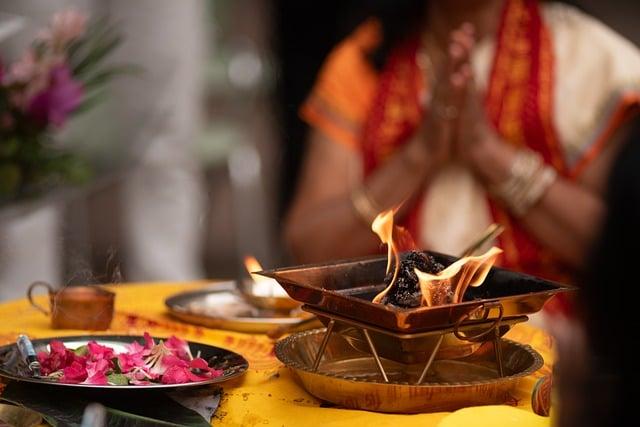Once upon a time, in a world where the sun and moon danced across the sky, the ancients named the days after celestial bodies. Sunday, the day of rest, was dedicated to the sun, the brightest star that warmed the earth and brought life. People would gather to celebrate its light, sharing stories and laughter. As the sun rose each Sunday, it reminded them of hope and renewal. Thus, the name “Sunday” was born, a tribute to the sun’s unwavering presence, illuminating their lives and marking a day of peace and reflection.
Table of Contents
- The Etymology of Sunday and Its Historical Roots
- Cultural Significance of Sunday Across Different Societies
- Religious Observances and Their Influence on Sunday Traditions
- Modern Interpretations and Recommendations for Sunday Practices
- Q&A

The Etymology of Sunday and Its Historical Roots
The name “Sunday” has its origins steeped in ancient traditions and linguistic evolution. Derived from the Old English word “Sunnandæg”, which translates to “day of the sun,” this nomenclature reflects the day’s association with the sun in various cultures. The influence of Latin is also evident, as the term is linked to “dies Solis”, meaning “day of the sun.” This connection highlights the sun’s significance in both Roman and Germanic societies, where it was often revered as a powerful celestial entity. The sun’s prominence in these cultures led to its designation as a day of rest and worship, marking a time for reflection and rejuvenation.
Historically, Sunday has been a day of significance across various civilizations. In ancient Rome, it was dedicated to the sun god, Sol, while in Norse mythology, it was associated with the goddess Sól. As Christianity spread, the day took on new meaning, becoming a day of worship and rest in honor of the resurrection of Jesus Christ. This transformation solidified Sunday’s status as a sacred day in many cultures, intertwining its etymological roots with religious practices. The evolution of the term and its cultural implications illustrate how language and tradition can shape our understanding of time and its significance in human life.

Cultural Significance of Sunday Across Different Societies
Across various cultures, Sunday holds a unique place, often symbolizing rest, reflection, and community. In many Western societies, it is traditionally viewed as a day of worship and family gatherings, rooted in Christian practices. The name itself, derived from the Old English “Sunnandæg,” meaning “day of the sun,” reflects the day’s association with the sun and its significance in ancient pagan rituals. This connection to the sun is echoed in other cultures, where Sunday is often linked to deities representing light and vitality. For instance, in Roman culture, Sunday was dedicated to the sun god, Sol, highlighting the day’s importance in both spiritual and social contexts.
In contrast, some cultures observe Sunday as a day of leisure and personal time, free from the demands of work and routine. In predominantly Muslim countries, the weekend may shift to Friday and Saturday, but Sunday still retains its significance as a day for family and community activities. The cultural practices surrounding Sunday can vary widely, yet common themes emerge, such as the emphasis on **rest**, **reflection**, and **connection**. Whether through religious observance, family gatherings, or simply a day to unwind, Sunday continues to be a pivotal part of the weekly rhythm in societies around the globe.

Religious Observances and Their Influence on Sunday Traditions
Throughout history, Sunday has been a day imbued with religious significance, shaping various traditions and practices across cultures. For Christians, Sunday is celebrated as the Lord’s Day, commemorating the resurrection of Jesus Christ. This observance has led to a variety of rituals, including attending church services, partaking in communal prayers, and engaging in acts of charity. In many communities, the day is marked by a sense of rest and reflection, encouraging individuals to pause from their weekly labors and reconnect with their spiritual beliefs. The influence of these practices can be seen in the way Sunday is often reserved for family gatherings and leisurely activities, fostering a sense of togetherness and community.
In addition to Christianity, other religions have their own observances that impact Sunday traditions. For instance, in Judaism, the Sabbath, which begins at sunset on Friday and ends at nightfall on Saturday, sets a precedent for rest and spiritual reflection that carries over into Sunday. This intermingling of traditions has led to a rich tapestry of customs, such as:
- Family meals that bring loved ones together to share stories and blessings.
- Outdoor activities that promote a connection with nature and relaxation.
- Volunteering in local communities, reinforcing the importance of service and compassion.
As these diverse influences converge, Sunday evolves into a day that not only honors religious observances but also nurtures social bonds and personal well-being.

Modern Interpretations and Recommendations for Sunday Practices
In contemporary society, the significance of Sunday has evolved, often reflecting personal beliefs and lifestyles. Many individuals view this day as an opportunity for rest and rejuvenation, embracing the idea of a weekly pause from the hustle and bustle of daily life. This modern interpretation encourages practices that promote mental and physical well-being, such as:
- Mindfulness and Meditation: Engaging in reflective practices to foster inner peace.
- Outdoor Activities: Connecting with nature through hiking, biking, or leisurely walks.
- Family Time: Prioritizing quality moments with loved ones, whether through shared meals or activities.
Additionally, many communities have begun to reimagine Sunday as a day for social engagement and service. This shift not only honors the traditional values associated with the day but also encourages a sense of belonging and purpose. Recommended activities include:
- Volunteering: Participating in local charities or community service projects.
- Cultural Events: Attending art shows, concerts, or workshops that enrich the community.
- Spiritual Gatherings: Joining groups for discussions or services that resonate with personal beliefs.
Q&A
-
What is the origin of the name “Sunday”?
The name “Sunday” comes from Old English “Sunnandæg,” which translates to “Sun’s day.” This naming convention is rooted in the Latin phrase “dies Solis,” meaning “day of the Sun,” reflecting the ancient association of this day with the Sun.
-
Why is Sunday considered a day of rest?
Sunday is traditionally viewed as a day of rest in many cultures, particularly in Christianity, where it commemorates the resurrection of Jesus. This practice aligns with the biblical concept of resting on the seventh day, as described in the Book of Genesis.
-
How do different cultures refer to Sunday?
Various cultures have unique names for Sunday, often linked to the Sun. For example, in Spanish, it is “domingo,” derived from the Latin “dies Dominicus,” meaning “the Lord’s day.” In French, it is “dimanche,” which also has similar roots.
-
Is Sunday considered the first or last day of the week?
The classification of Sunday as the first or last day of the week varies by culture. In many Western countries, Sunday is seen as the last day, while in some Middle Eastern cultures, it is considered the first day of the week, marking the beginning of the workweek.
In unraveling the origins of Sunday, we glimpse the tapestry of culture, language, and belief that shapes our lives. As we embrace this day of rest and reflection, we honor the rich history woven into its name, inviting us to pause and appreciate the present.

大家好,我是彼得潘,專業的手法身體治療師。我喜歡探索和研究各種主題,並透過與人工智慧的合作分享專業、實用、有趣的文章。我們定期進行人工審核,以確保內容的準確性。如果您發現文章中有任何不準確的地方,請隨時與我們聯繫,我們會及時糾正。您可以透過 [email protected] 與我們聯繫。


